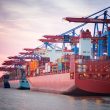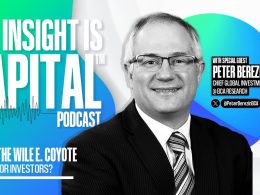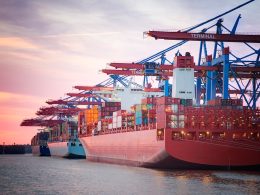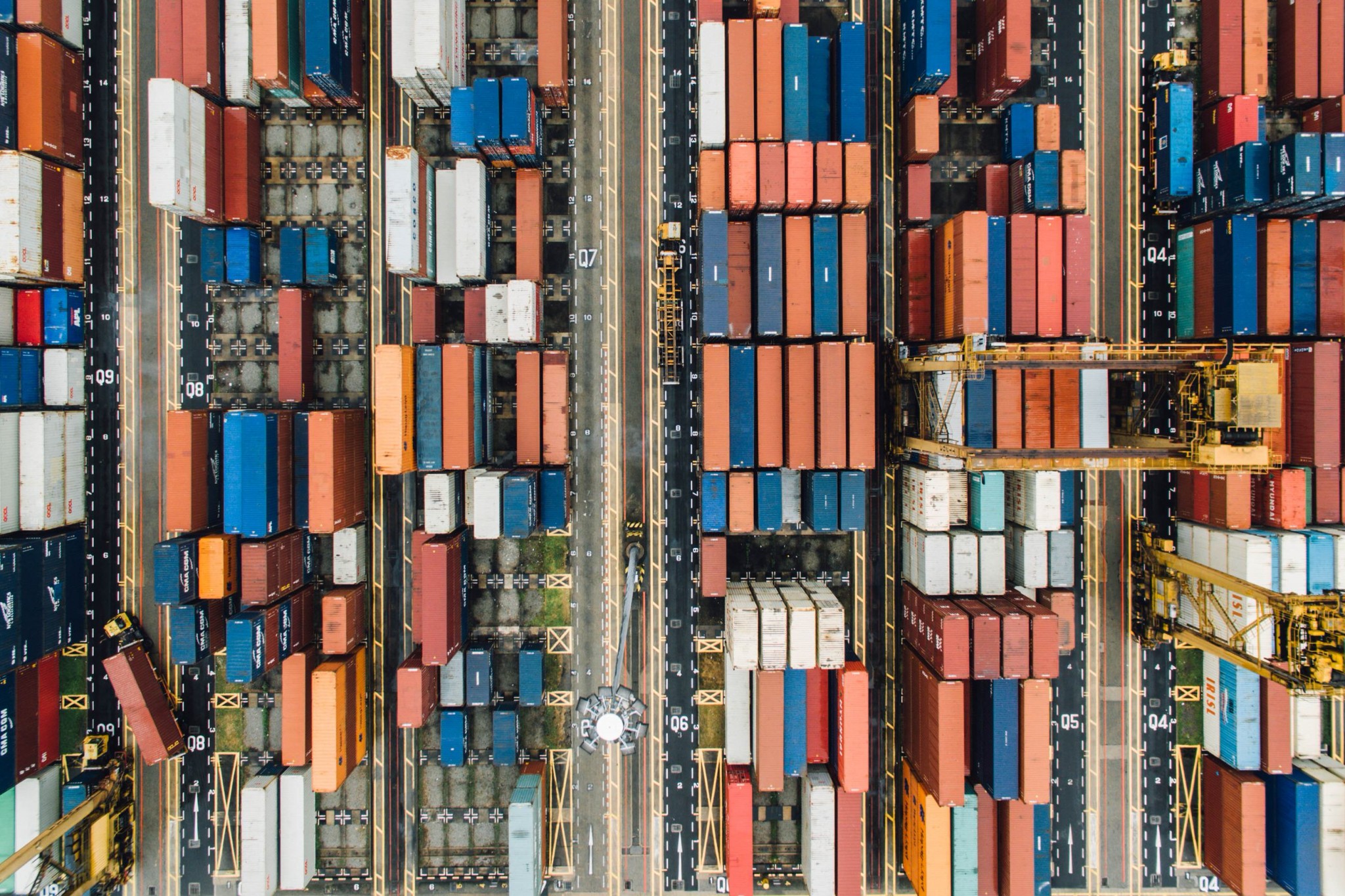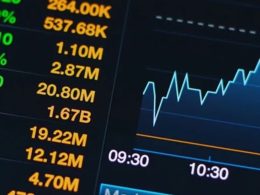by Kristina Hooper, Global Market Strategist,, Invesco Canada
Economic policy uncertainty has for decades been recognized by economists as having the potential to negatively impact economic growth. In 2015, economists Huseyin Gulen and Mihai Ion found that economic policy uncertainty has a strong negative correlation to business investment.1 This built on previous research from the 1980s that showed that high uncertainty gives firms an incentive to delay investment decisions, especially in situations where reversing an investment decision can be costly.2
This makes sense; it is the concept that the real option value of waiting increases in the face of economic uncertainty, which incentivizes delaying investment. (Avinash Dixit and Robert Pindyck, “Investment Under Uncertainty”, 1994). As the authors explained, “… a firm with an opportunity to invest is holding an “option” analogous to a financial call option — it has the right but not the obligation to buy an asset at some future time of its choosing. When a firm makes an irreversible investment expenditure, it exercises, or “kills,” its option to invest. It gives up the possibility of waiting for new information to arrive that might affect the desirability or timing of the expenditure; it cannot disinvest should market conditions change adversely. This lost option value is an opportunity cost that must be included as part of the cost of the investment. As a result, the NPV rule “invest when the value of a unit of capital is at least as large as its purchase and installation cost” must be modified.” (Dixit and Pindyck, 1994)
Research has found that uncertainty not only reduces the level of investment but it also lowers the sensitivity of businesses to changes in economic policy. In other words, in periods of uncertainty, changes in fiscal or monetary policy do not have as much of an effect on business investment – this is a “chilling effect” that can render policy less effective at achieving its objectives. (Bloom, “Really Uncertain Business Cycles”, 2018). For example, a rate cut by the Bank of England may not have as stimulative an effect given Brexit uncertainty than it would in an environment without such uncertainty, all else being equal.
Trade policy uncertainty is a particularly potent form of economic policy uncertainty. The findings of economists Kyle Handley and Nuno Limao may be particularly instructive in this area:
- The economists found that Portugal’s inclusion in the European Community in 1986 reduced the trade policy uncertainty faced by Portuguese firms, and induced large numbers of them to make investments to start exporting to the European Community.3
- They also found that China’s inclusion in the World Trade Organization reduced the US threat of a trade war, which accounted “for over one-third of that export growth in the period 2000–2005.”
- Additionally, they found that “reduced policy uncertainty lowered US prices and increased its consumers’ income by the equivalent of a 13-percentage-point permanent tariff decrease.”
Handley and Limao concluded that these findings provide evidence that policy uncertainty has a material impact on economic activity, and that trade agreements are an important tool in reducing uncertainty.
Such uncertainty is significant and growing – and should be of concern to investors. Consider the economic policy uncertainty index created by Scott Baker, Nicholas Bloom and Steven Davis:5
- It has been demonstrated that positive shocks to the economic policy uncertainty index have been accompanied by “significant decreases in industrial production, employment, GDP, and real investment for at least two to three years.”6
- It has also been found that a rise in economic policy uncertainty has had a negative correlation with stock market returns: a one standard deviation increase in economic policy uncertainty is associated with a contemporaneous 1.31% decrease in market returns.
The impact on market returns cannot be overlooked; that is the real impact to investors of economic policy uncertainty – and it is significant.
Brexit: A seismic level of uncertainty
Here in 2019, Brexit has created a seismic level of policy uncertainty, and it will likely be used by economists for years to come as a case study in how policy uncertainty impacts economic growth. In the United Kingdom, the ongoing Brexit crisis has created a lack of visibility into so many policies around the movement of people, goods and money — which is, of course, very problematic for corporations. To better understand the possible implications of Brexit in real time, the Bank of England collaborated with several academic institutions in order to create a Decision Market Panel in August of 2016, with the objective of understanding how companies are reacting to Brexit uncertainty through regular surveys of business leaders. Findings from the Decision Maker Panel were not surprising:
- Businesses in industries more exposed to exports and/or migrant labor, such as manufacturing and construction, were more likely to report they have been affected by Brexit uncertainty. (source: Bank of England, “Brexit and Uncertainty: Insights from the Decision Maker Panel”, February 2019)
- Uncertainty has increased since the Brexit vote three years ago: in earlier surveys, 40% of firms cited Brexit as one of their top sources of uncertainty; in the most recent surveys, 48% of firms cited Brexit as one of their top sources of uncertainty. (source: Bank of England, “Brexit and Uncertainty: Insights from the Decision Maker Panel”, February 2019)
HSBC CEO John Flint explained it best, “The longer we have uncertainty, the worse it’s going to be for the customers. Customers are absolutely postponing investment decisions … and that’s been the part of this slowdown that we have seen in the UK.”7
Companies are not just delaying investment; in some cases, they are ending investment. For example, a number of companies have moved their European headquarters from London to continental Europe, including Bank of America Merrill Lynch, UBS, Unilever, Moneygram, Sony and Panasonic.8 Others are shutting down plants, moving assets or planning to do so. For example, In January, Airbus CEO Tom Enders warned that the firm may begin shutting down its plants in the UK, citing a lack of clarity on what will happen. Aviva, the second-largest insurance company in the UK, announced in February its plans to move nearly 8 billion pounds worth of assets to Ireland in preparation for Brexit.9
Therefore, it is not surprising that we have seen disappointing results in terms of UK capital spending. For 2018, business investment shrank by 2.5%, falling in all four quarters of 2018.10 The last time business investment fell for four consecutive quarters was during the Global Financial Crisis.
The consequences of uncertainty
It is clear that the Brexit vote and the ensuing failure to achieve an agreement has created a powerful, persistent uncertainty shock that is growing. As of this writing, the UK has not yet arrived at a customs agreement, and there remains the very real possibility that it could “crash out” of the European Union without any trade agreements in place. While the Article 50 extension granted by the European Union has temporarily averted a “crash out,” it has extended the period of extreme policy uncertainty, which is likely to continue to depress business investment.
As we look to the rest of 2019 and beyond, there are many question marks on the horizon. It is not just Brexit that is creating economic policy uncertainty for firms. The US’ trade war with China as well as the possibility of US trade wars with the European Union and Japan are also creating uncertainty for businesses.
With implications for economic growth as well as asset returns, it is important for us to follow policy uncertainty closely.
This post was originally published at Invesco Canada Blog
Copyright © Invesco Canada Blog




